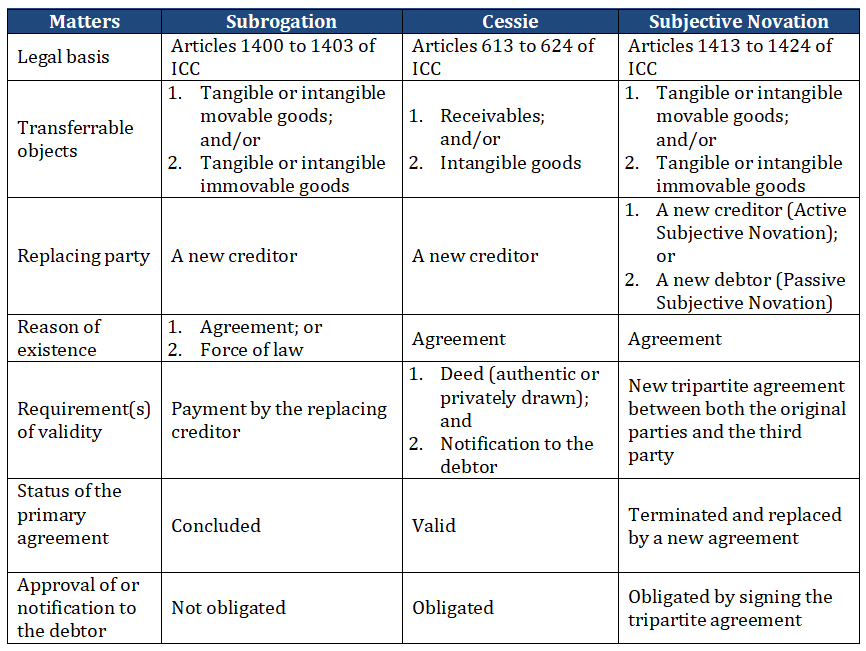
“Parties bound by a loan agreement are entitled to conduct a transfer of debts or receivables by one of three means of transfer under the Indonesian Civil Code. Considering the differing aspects of the three, the parties are free to choose any means most suitable for their needs.”
Within the contracts law, the parties bound by an agreement are legally entitled to transfer their debts or receivables to another party for various purposes. In Indonesia, the contracts law is mostly regulated by the Indonesian Civil Code (“ICC”), which mentions three means of transfer, namely subrogation, cessie, and novation.
Under the ICC, subrogation is defined as a transfer of rights from the former creditor to the replacing creditor, due to existence of payment of the debts. It is contained within a security agreement (accessoir agreement), which is a secondary agreement attached to the primary agreement. Considering that the payment has been made, the primary agreement between the debtor and the former creditor is to be deemed concluded. However, the security agreement is still valid, because the receivables have been transferred to the replacing creditor.
For Cessie, the ICC regulates such transfer under the name of ‘transfer of registered receivables and other intangible goods’. While seemingly similar to Subrogation, Cessie differs in how it is conducted. Unlike Subrogation, Cessie requires a notification to the debtor and must be done using a deed (either authentic or privately drawn). Moreover, both the security agreement and the primary agreement stay valid at all times, because there has yet to be a payment by the replacing creditor.
Out of the three means of transfer, Novation holds the most distinction. The ICC regulates Novation under the name of ‘renewal of a debt’, stipulating that Novation only happens upon the existence of a new agreement to replace the former agreement, either transferring the debts or receivables to another party (Subjective Novation) or renewing the whole loan agreement altogether (Objective Novation). Subjective Novation allows for the third party to be either a new creditor or a new debtor. In which case, the new agreement must be in the form of a tripartite agreement between both the original parties and the third party (either as a new creditor or a new debtor). By contrast, Objective Novation does not give rise to any third party, because the new agreement only modifies the object(s) of the agreement. Similar to Subrogation, Novation does not require a deed and terminates the former agreement by its existence.

Author: Yohana Veronica Tanjung
Gaffar & Co., Indonesian Boutique Law Firm which specializing and focus on commercial law areas.